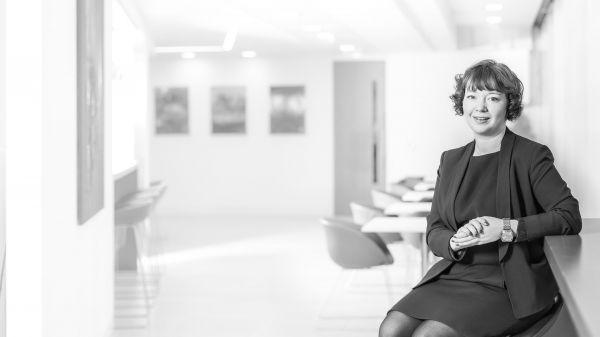 AIJA will host its 7th Annual Competition Conference from 21-23 June in Frankfurt to discuss the impact of innovation on competition law and share an outlook into the future. Alongside the Competition Conference, the IP TMT and TRADE commissions have organised a Conference covering emerging legal issues related to Internet of Things (IoT). There will also be a cross-over event on FRAND issues. Registrations are open for both events here.
AIJA will host its 7th Annual Competition Conference from 21-23 June in Frankfurt to discuss the impact of innovation on competition law and share an outlook into the future. Alongside the Competition Conference, the IP TMT and TRADE commissions have organised a Conference covering emerging legal issues related to Internet of Things (IoT). There will also be a cross-over event on FRAND issues. Registrations are open for both events here.
To find out more about the Conference and the IoT Seminar, we asked Chloe Taylor, Organising Committee member at AIJA and Associate, Carpmaels & Ransford.
Q1: What are the challenges and opportunities of IoT in the legal profession?
Over the past few years, we have gone from Internet of Things being a niche interest to a connected bracelet or fitness tracker that everyone wears on their wrist. This means that it is important for lawyers to understand the legal issues involved in the Internet of Things. One of the challenges for lawyers is that the Internet of Things doesn’t map neatly onto a specific area of law. A commercial lawyer, data privacy lawyer, telecoms lawyer, intellectual property lawyer or competition lawyer could find themselves all being asked to advise on a connected device and/or IoT issue and all of them would have something to say but wouldn’t necessarily have the whole picture.
It can be a daunting area to get into – that’s one of the things we wanted to address in this conference. So, we are breaking the Internet of Things down into parts – ownership issues (i.e. how do you own a connected device), data issues (both personal data and wider issues of cybersecurity), trademarks and the internet of things and the impact of connected devices on supply chains and distribution.
Q2: In your view, how can the law practice embrace IoT in their day to day business?
How and to what extent law firms actively use connected devices will, I think, very much depend on the area of law in which you practice. In family and criminal law, it is clear that connected devices can be extremely useful as sources of evidence, for example, a fitness tracker might provide evidence of the location of a suspect. For those of us in commercial and corporate law IoT offers opportunities in terms of work but may not as readily translate into being used in our day to day legal work. That said, there are new technologies which I think are more likely to impact commercial and corporate lawyers – I’m a commercial IP lawyer by day and two of the areas that will really change my practice in the next few years are (i) the rise of smart contracts, and (ii) block chain technology for intellectual property registers. It’s definitely an exciting time to be a lawyer.
Q5: In your view, what are the main data protection issues in IoT?
One of the main challenges for data protection and IoT is that the IoT/connected devices rely on a flow of information and this can include personal data. This requirement for free flow of data between devices seemingly runs counter to the narrative of the GDPR which encourages consumers to be more mindful of the use of their data and to take back control. This contrast and looking at the impact of the GDPR one month in will be the subject of one of the talks at the conference – and it looks to be a great talk with representatives from both private practice and industry giving their thoughts.
To register, please visit the dedicated event web page. See you in Frankfurt!